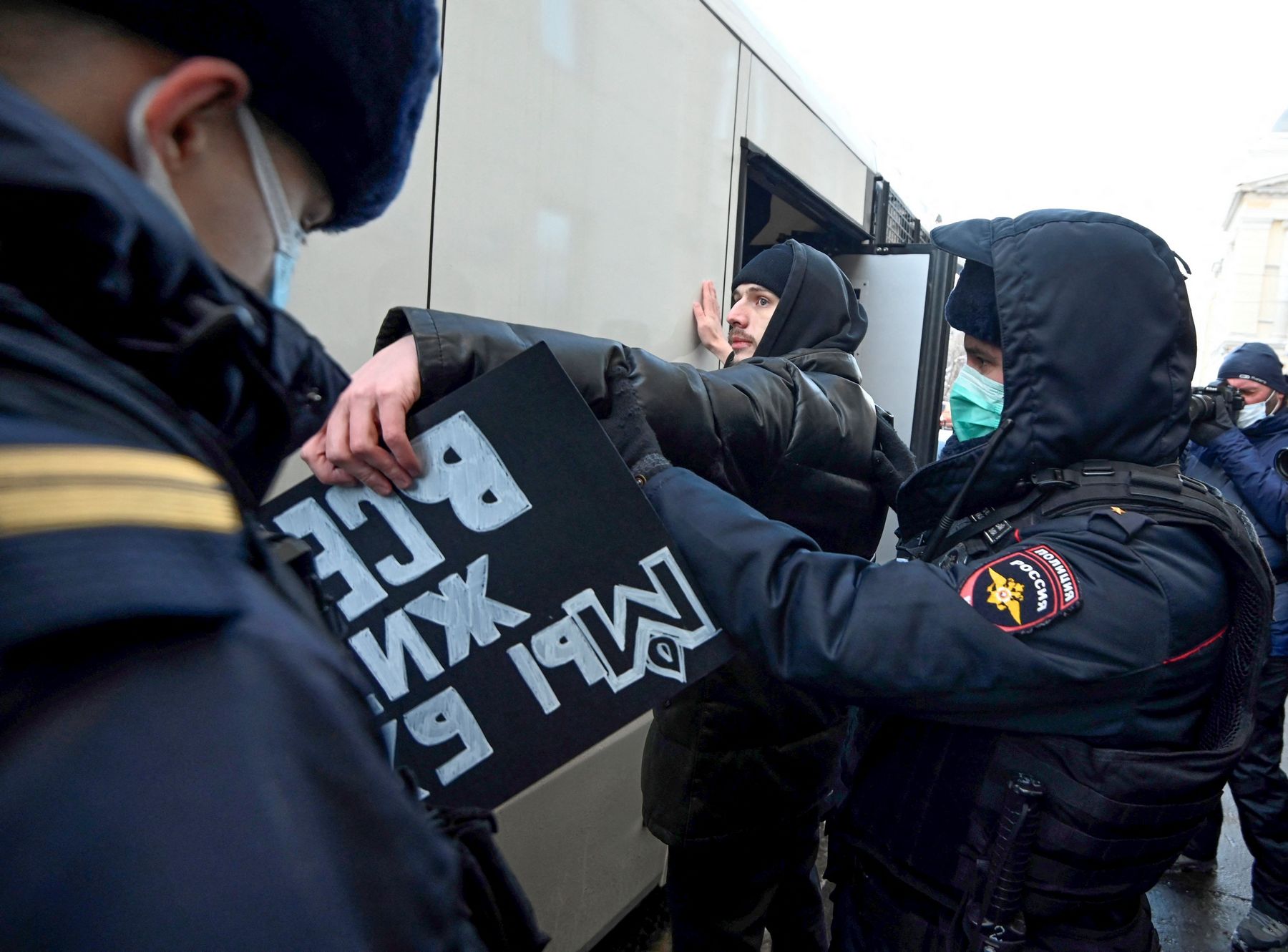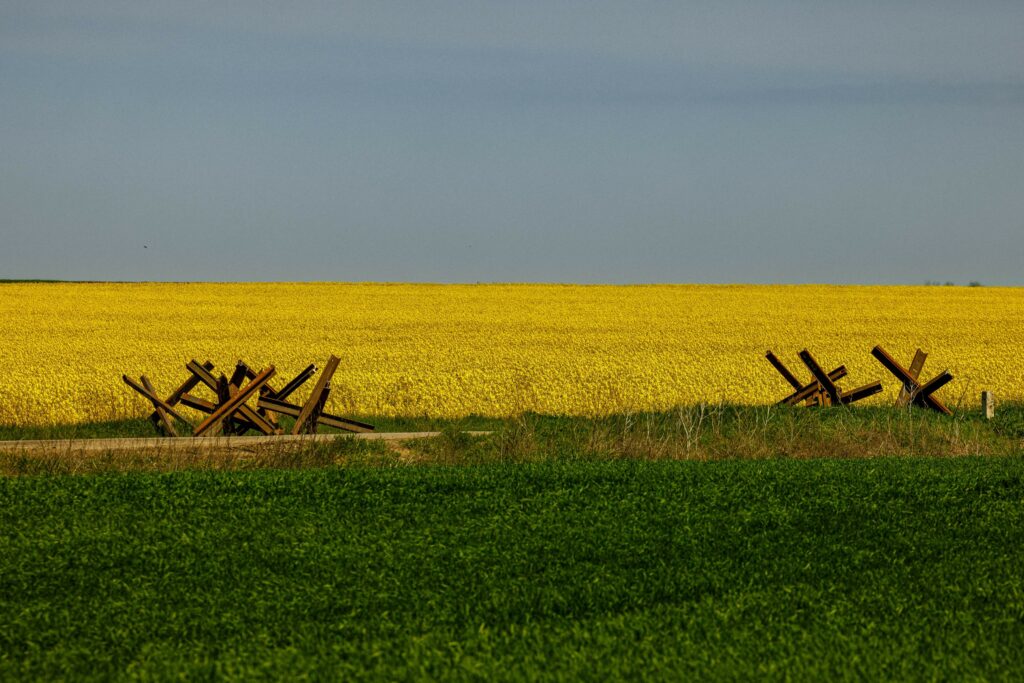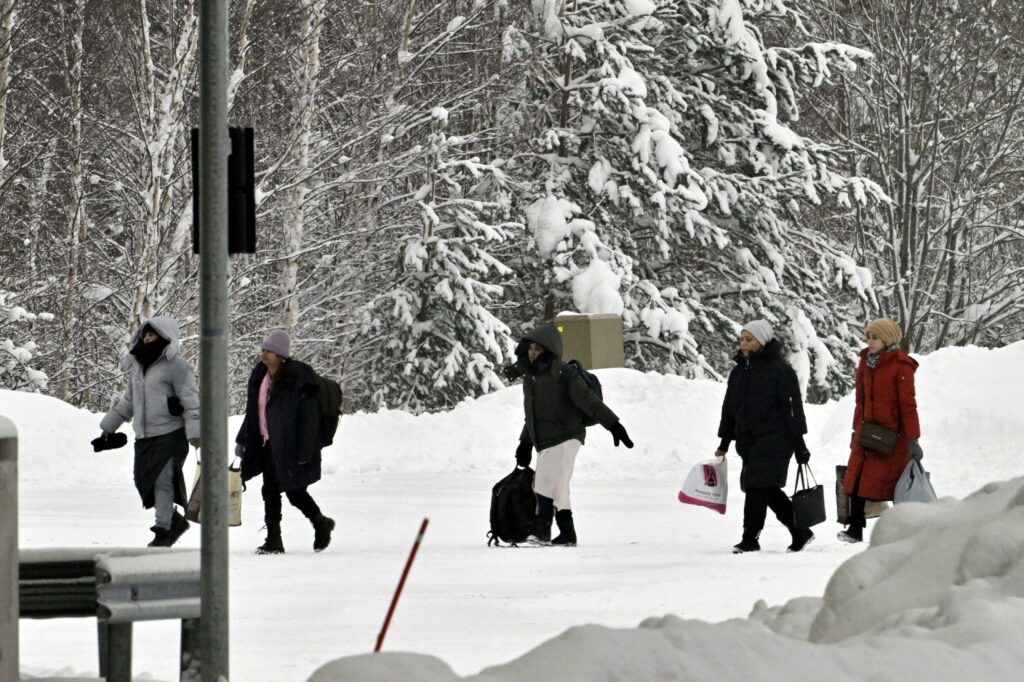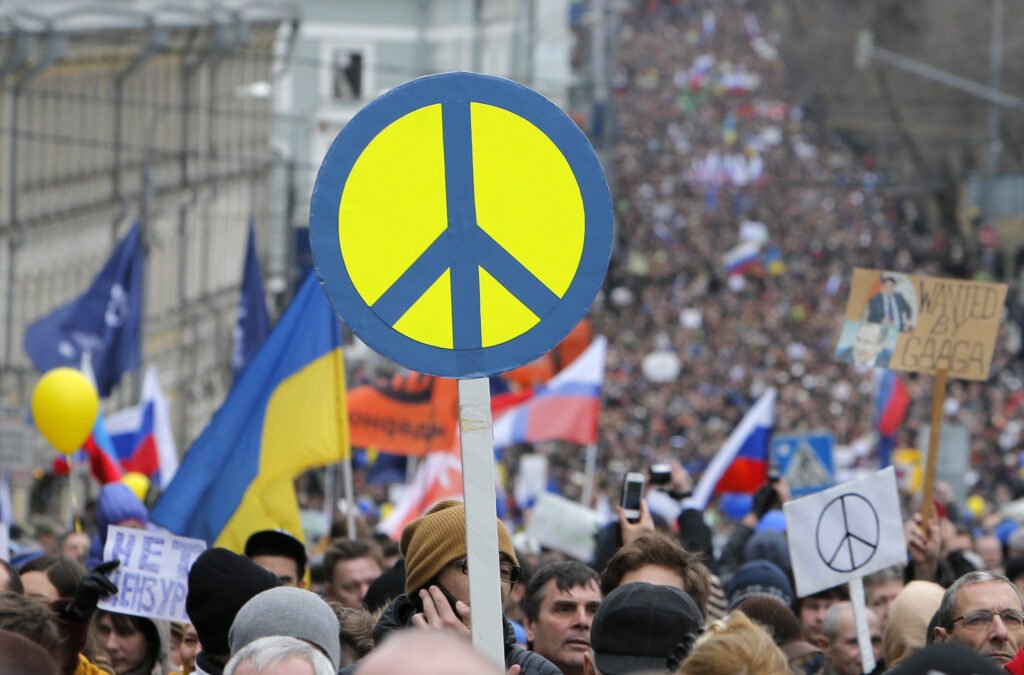The year 2021 has seen an encroachment on human rights that is unprecedented in the post-Soviet history of Russia and which can be traced both in new laws and law enforcement practice. Let us highlight the most dangerous setbacks that occurred in this regard in the course of the year coming to an end.
Legal amendments
Individuals and unregistered non-profit organisations were added to the already-existing categories of ‘foreign agents’. The range of formal reasons for being labelled as a foreign agent has expanded. For instance, in the case of individuals, ‘intentional collection of information in the field of military, military-and-technical activities of the Russian Federation (RF)’ which does not violate the law was added on top of the traditional ‘political activity’. In the case of non-profit organisations, funding from Russian ‘intermediaries’ and legal entities whose beneficiary owners are foreigners is treated as funding from abroad. In addition, associates, members and managers of non-profit organisations listed as foreign agents are obliged to label the material they produce and disseminate accordingly. The most severe punishment for violations of the foreign agent legislation (Art. 330.1 of the Criminal Code (CC) of the RF) was increased from two to five years of imprisonment.
In March, precautionary control over the activities of non-profit organisations listed as foreign agents was introduced, and officials are entitled to issue a well-grounded decision to ban any agenda developed by a ‘foreign agent’. Given the vagueness of the concept of the ‘agenda’, it can be assumed that officials can now ban virtually any activity of non-profit organisations labelled as foreign agents.
Freedom of assembly has also been further undermined. A rally of over 500 people is officially recognised as participation in an election, while an already approved rally can be banned at the authorities’ discretion under the pretext of an allegedly changed purpose or number of participants or an unverifiable threat of terrorism or an emergency situation, among other reasons.
The definition of criminal liability for cooperation with ‘undesirable’ organisations has been expanded and its application simplified. Now, one can be punished under Article 284.1 of the CC with up to six years’ imprisonment following one rather than two prior instances of administrative liability (in the case of charges of organising the activities of an undesirable organisation, one can be punished without prior history of administrative offences).
Let me underline a number of additional provisions added to the criminal law which can be arbitrarily applied against dissenters. The already vague and open-ended definition of criminalised hooliganism (Article 213 of the CC) has been further expanded. Now, in order to be sentenced to up to five years in prison for a gross violation of public order it is enough to be accused of using a ‘threat of violence’ rather than arms. Hooliganism charges are traditionally used in cases where you want to put someone in prison but there are no grounds for that. It will be even easier to do so from now on. The same goes for slander (Article 128.1 of the CC). One can now be accused of slander and be sentenced to up to five years in prison even if the slandered individuals are not identified. Earlier, this crime was not punished by imprisonment.
Previously, it was only possible to prosecute individuals for ‘disrupting transportation services’ that caused serious harm to health or major damage to property (Article 267 of the CC), whereas now it is sufficient to be accused of obstructing the movement of vehicles and pedestrians by endangering, for example, the health and safety of citizens or by causing destruction or damage to property. Thus, objective grounds for criminal prosecution are replaced with subjective interpretation by a law enforcement officer, and such alleged violations can result in up to one year of imprisonment. The new wording of the article has already been eagerly used to prosecute peaceful protesters.
Another pointless and politicised novelty of the criminal law concerns the ‘defence’ of Great Patriotic War veterans. Dissemination of intentionally misleading information about them is now considered rehabilitation of Nazism (Article 354.1 of the CC) and can lead to a punishment of up to three years in prison. The reason for introducing this provision was the accusation of Alexei Navalny of such a crime, but in fact it is a continuation of the state’s efforts to limit the freedom of historical debate.
There is yet another provision which does not lead to criminal reprisals but entitles the authorities to limit the electoral rights of citizens in an arbitrary manner. There have been quite a few such restrictions before (on grounds of citizenship or a residence permit of a foreign state, criminal record or administrative liability), but the new bans are revolutionary in nature. Any individual ‘involved in the activities’ of organisations declared extremist or terrorist by Russian courts cannot be elected for three and up to five years. Such involvement includes donations, for example. The real legal breakthrough is that these legal provisions can apply to acts committed three years prior to this law’s entry into force.
Another amendment that caused public outcry was the amendment of the Law ‘On Education‘, which introduced the concept of an ‘educational activity’ understood as virtually any dissemination of knowledge, competences, skills, etc. It introduced arbitrary bans on communicating ‘inaccurate information about the historical, national, religious and cultural traditions of peoples’. Therefore, the mode, conditions and forms of educational activities are defined in an arbitrary way by the government.
Law enforcement in practice
When it comes to the encroachment on human rights, law enforcement has not been lagging behind law-making in 2021. The year began with the blatantly lawless arrest of Alexei Navalny which marked the ultimate transition to a forceful crackdown on the political opposition. Another instance of violent repression is the shutting down of Memorial International and the Memorial Human Rights Centre. In between there have been a vast number of repressive episodes of all kinds. These include the unprecedentedly large-scale reprisals against protesters: according to official data, after the three mass rallies in January and February alone in the aftermath of the detention of Navalny and the publication of the film ‘Palace for Putin’, 17,600 people were detained across the country. Of these, 942 were detained for violations of the administrative law in Moscow alone, 15 times more than during the past 15 years. About 150 people were under criminal charges for participation in the protests. Their accusations varied from routine ‘violence against law enforcement officers’ to hooliganism, from the above-mentioned disruption of transportation services to the violations of epidemic restrictions, from calls for mass disorder to the involvement of minors in life-threatening activities.
Another case related to the exercise of the right to freedom of assembly was filed against leaders of the protest movement in Ingushetia. In December, a court sentenced them to a minimum of seven and a half to nine years in prison, finding them guilty of violence against law enforcement officers and organising extremist activities. The case is part of a trend to suppress freedom of association. It also includes the trumped-up criminal case against Andrey Pivovarov, former director of Open Russia, who has been in the Krasnodar pre-trial detention centre since May on charges of organising the activities of an ‘undesirable’ organisation. By activities, the investigation understood several dozen posts on Facebook.
Within the same trend of suppressing organised opposition activity are criminal cases against former coordinators of Navalny’s offices in the regions: Alexey Vorsin was given a suspended sentence in September for ‘repeated violations of the established rules for holding public events’ (the same Article was applied in the case of Ildar Dadin); Andrey Borovikov was sentenced in Arkhangelsk to two years and three months in a penal colony in April on charges of reposting a Rammstein video; Lilia Chanysheva was arrested in November in Ufa on charges of leading an extremist association. The latter charge could be made after Navalny’s network, including FBK, and Navalny’s offices were banned by court in June as belonging to an extremist organisation under trumped-up accusations.
Both criminal and administrative sanctions have been eagerly applied to suppress freedom of expression. Criminal charges included justification of terrorism, rehabilitation of Nazism, calls for extremist activities and insulting the feelings of believers while administrative offences included incitement to hatred, disrespect for the authorities and displaying extremist symbols (which in some cases involved symbols related to the Smart Voting campaign).
The year 2021 was especially notable for the upsurge of criminal and administrative cases against individuals who intentionally or unintentionally undermined symbols declared sacred by the authorities. These symbols are mainly associated with the cult of the victory in the Great Patriotic War and objects related to Orthodoxy. Most cases that attracted public attention involved photos and videos in social media that were noticed only after some time had passed, showing, for example, naked body parts in the same frame as a temple or dancing in front of a military monument.
Politically motivated criminal repression has been gaining momentum throughout the year. The number of political prisoners, according to Memorial’s conservative estimates, peaked at 426 by December 2021. It should be noted, however, that many of the cases include people deprived of liberty due to their religious affiliation and the exercise of the right to freedom of religion. These are individuals persecuted for their involvement with banned organisations declared terrorist (such as Hizb ut-Tahrir) or extremist (Jehovah’s Witnesses) as well as those accused on trumped-up charges of preparing and carrying out terrorist attacks because of their Islamic affiliation. In addition to impressive statistics, these cases have other things in common with the persecution of non-religious social groups, i.e. they are driven by the desire to suppress any ideologically motivated organisations that are independent of the state, especially those associated with other countries.
The recognition of non-profit organisations as foreign agents continued this year, but labelling unregistered public associations as foreign agents is a new phenomenon. Examples include Golos, OVD-Info and the Russian LGBT Network. This practice is extremely dangerous in that the state itself identifies responsible individuals representing these groups and imposes vague requirements on them under the threat of administrative and criminal liability.
Another notorious practice of the year coming to an end has been the mass labelling of independent outlets and journalists as ‘foreign agents’. In 2017−2020, as few as 17 entities were recognised as ‘foreign media agents’. In the first 12 months of this year, as many as 86 organisations and individuals were listed as ‘foreign media agents’.
The crackdown on the media, the aforementioned fight against the desecration of sanctities, repression against all kinds of bloggers, commentators and non-mainstream believers and the actual licensing of educational activities are aimed at suppressing the freedom of public debate and may result in a state monopoly in the ideological sphere. As of today, the apotheosis of this trend has been the demand for the closing down of Memorial International and the Memorial Human Rights Centre (On December 28, the Supreme Court ruled to ban the historical and educational society «Memorial International»). While in the case of Memorial International this is about restricting historical debate and establishing the ‘proper’ view of the past, the claims made against the Memorial Human Rights Centre substantially threaten the very possibility of protecting human rights from state arbitrariness. The Moscow Public Prosecutor’s Office states that the mere fact that human rights defenders publicly disagree with court rulings on terrorist and extremist cases is a violation of the law. Moreover, the position of the human rights defenders is actually equated with justification of extremism and terrorism.
Only the most notorious law enforcement and law-making trends have been listed here. The severity of these measures seems to be disproportionate compared to the immediate aim of preserving the regime. The Russian authorities seem to have learned their lesson from the powerful wave of Belarusian protests that nearly swept away the Lukashenko regime despite the much more severe crackdown and restriction of rights and freedoms in the preceding years than in Russia. Of course, Russia’s economic outlook and declining support for the authorities make the regime prepare for the worst-case scenario in advance, although the Belarusian-like consolidation of opposition forces and social mobilisation still seem highly unlikely in Russia for many reasons.
The level of restrictions and repression reached over the year coming to an end far exceeds what is necessary to maintain the status quo. The black-box design of the Russian rule makes it impossible to reliably determine the reason behind the disproportionate use of such severe measures. Either the Kremlin, looking at the example of Lukashenko, believes that crackdown and restrictions on human rights cannot be too severe, or the Russian leadership has unknown plans which will generate risks that will justify this level of repressions.
One thing is certain: the year 2022 will see an upward spiral of the trends we have witnessed this year…










